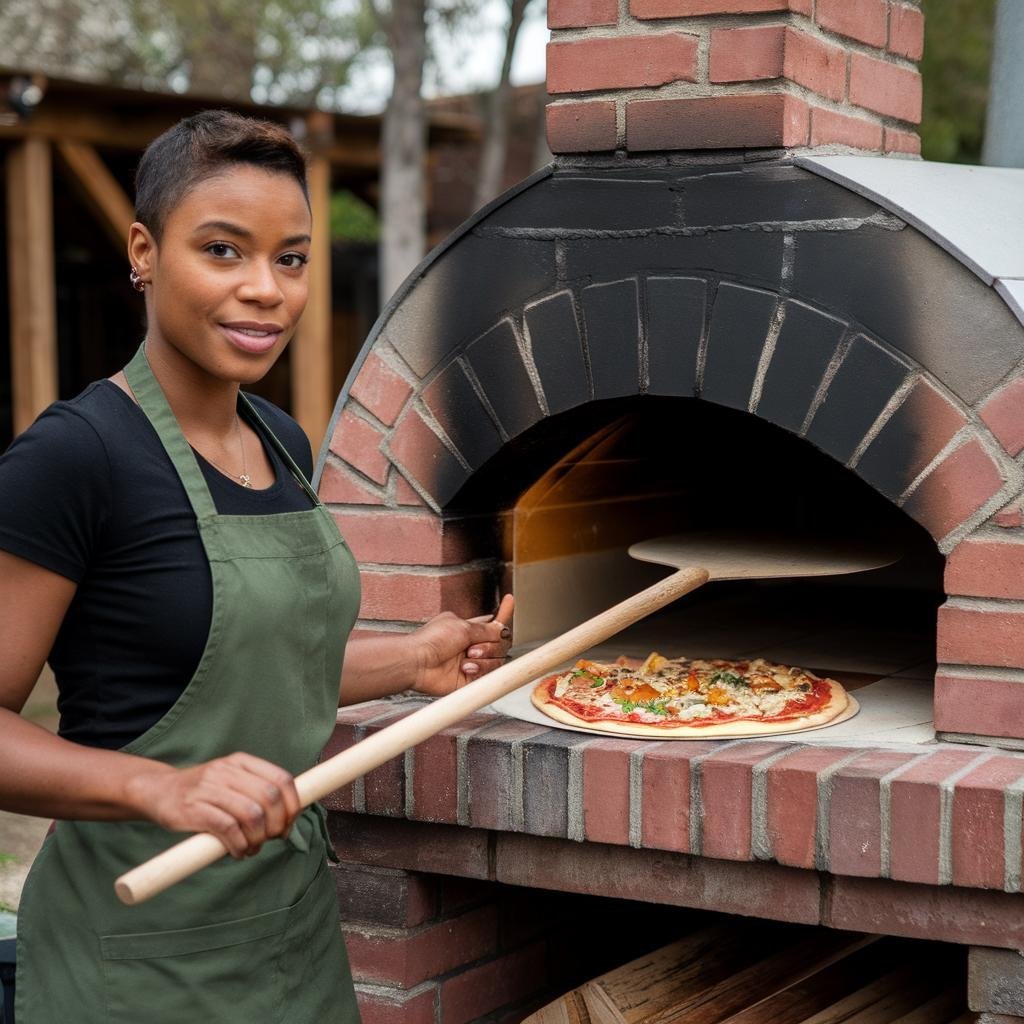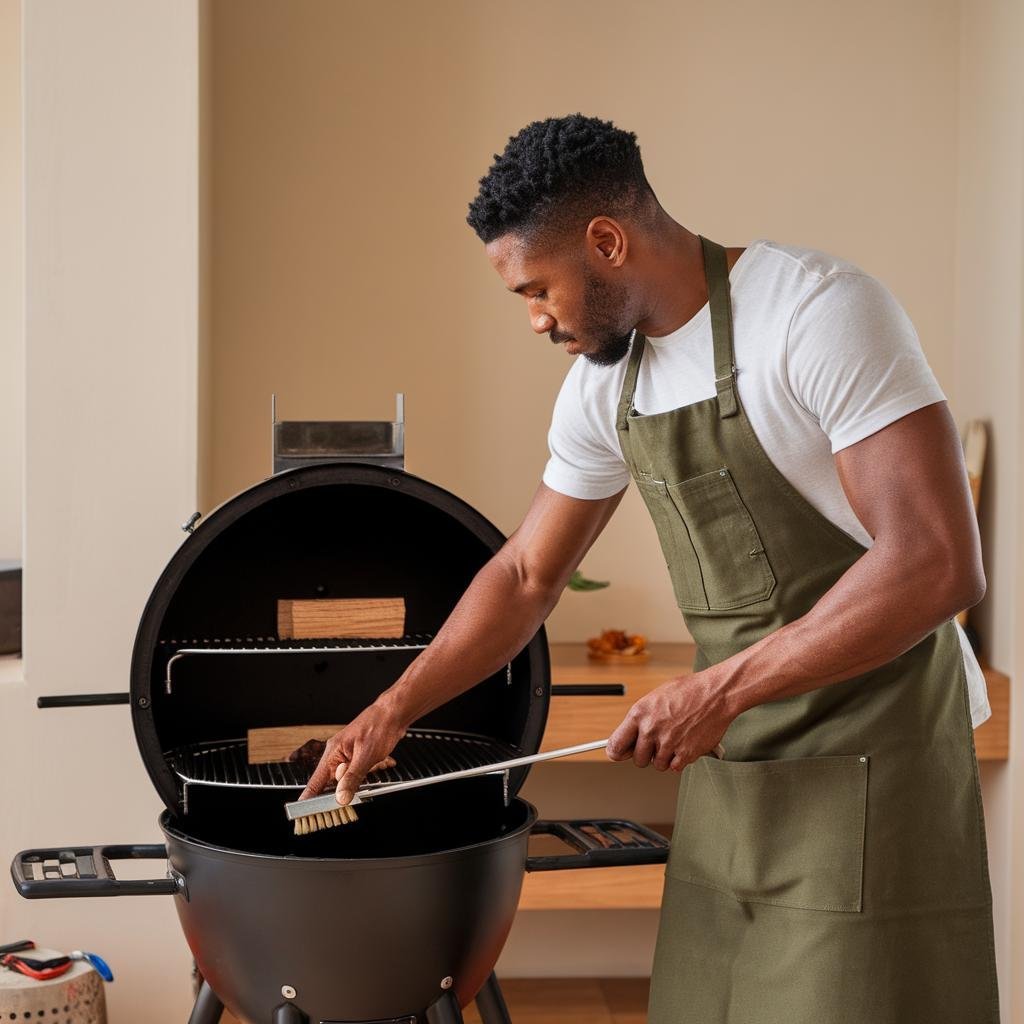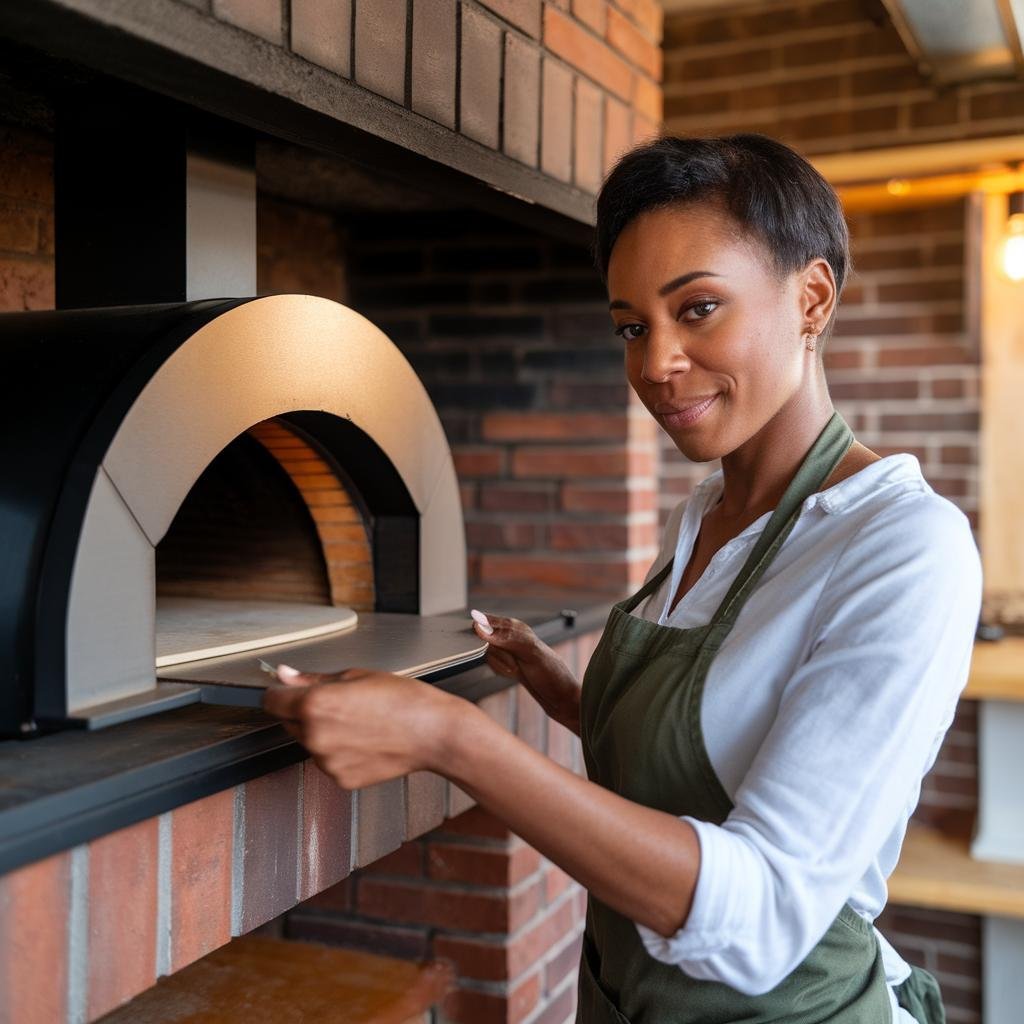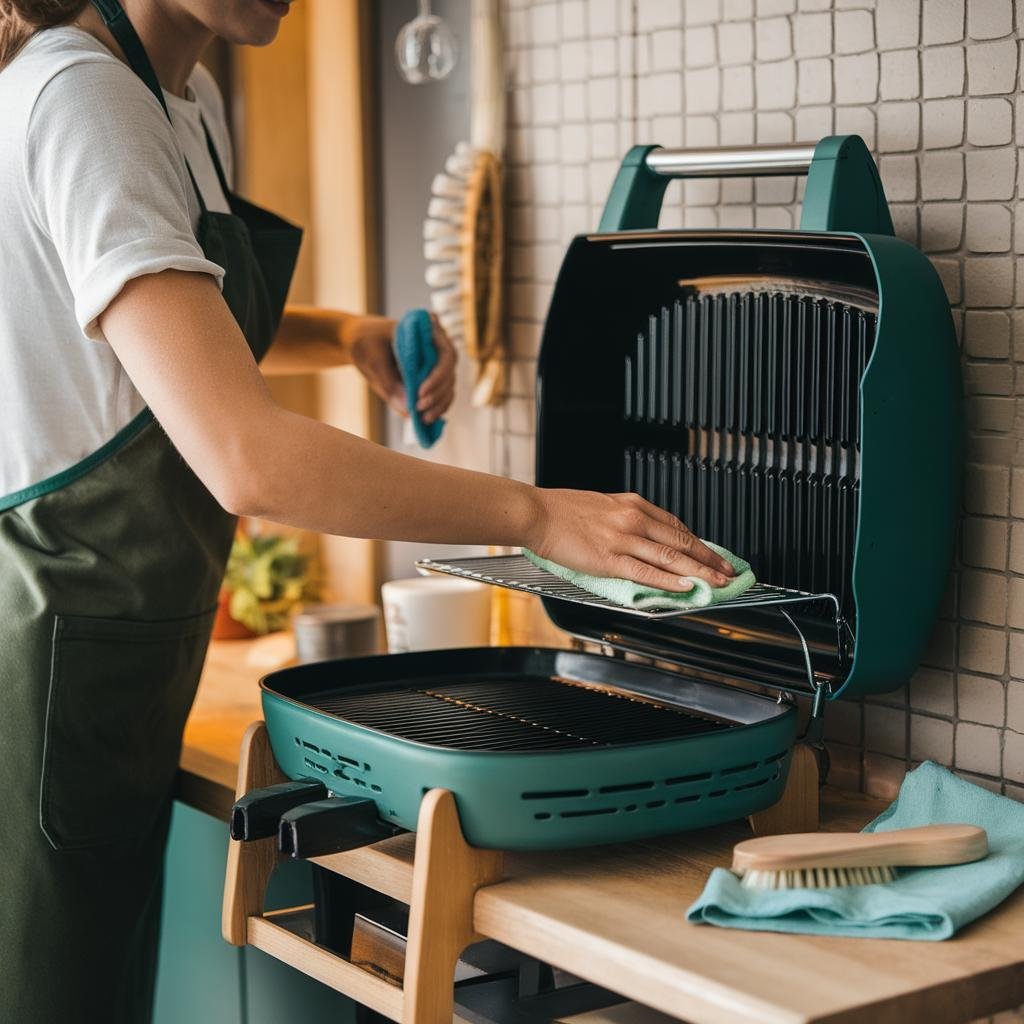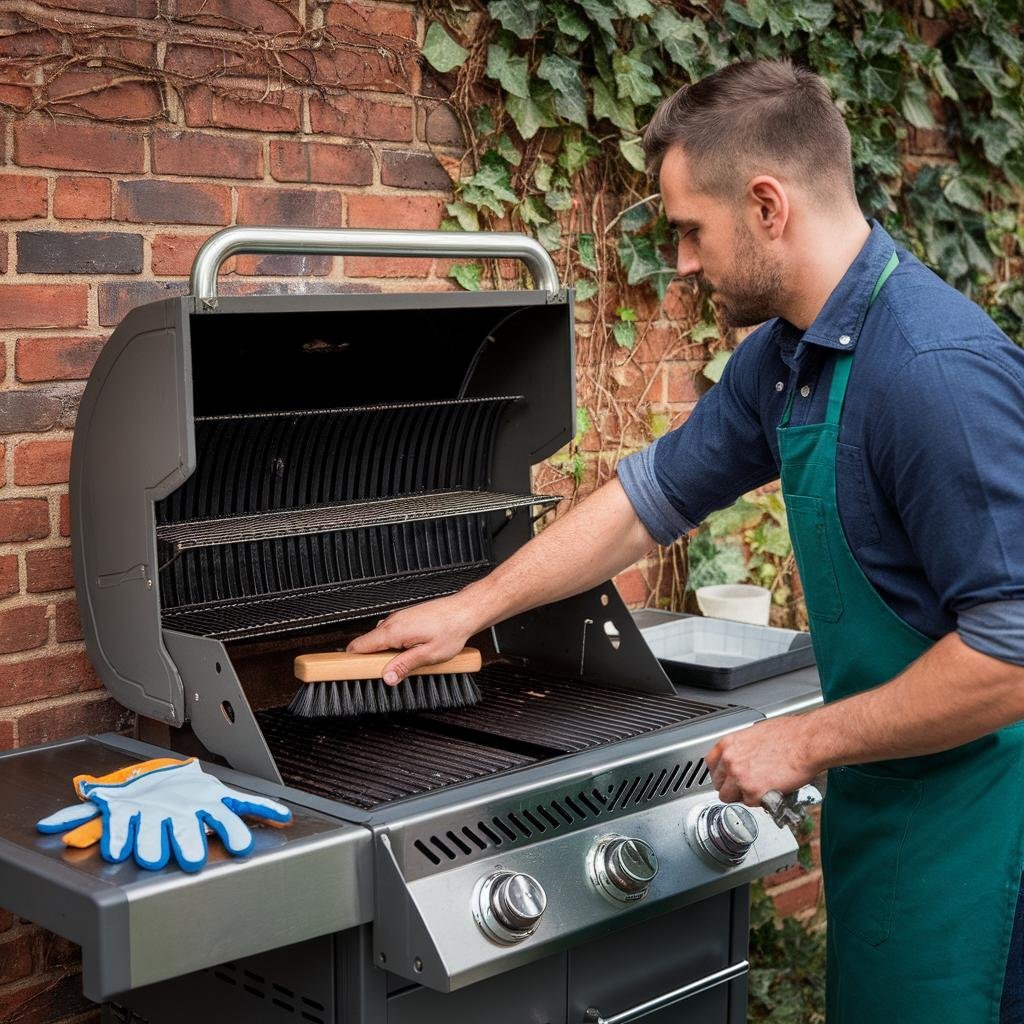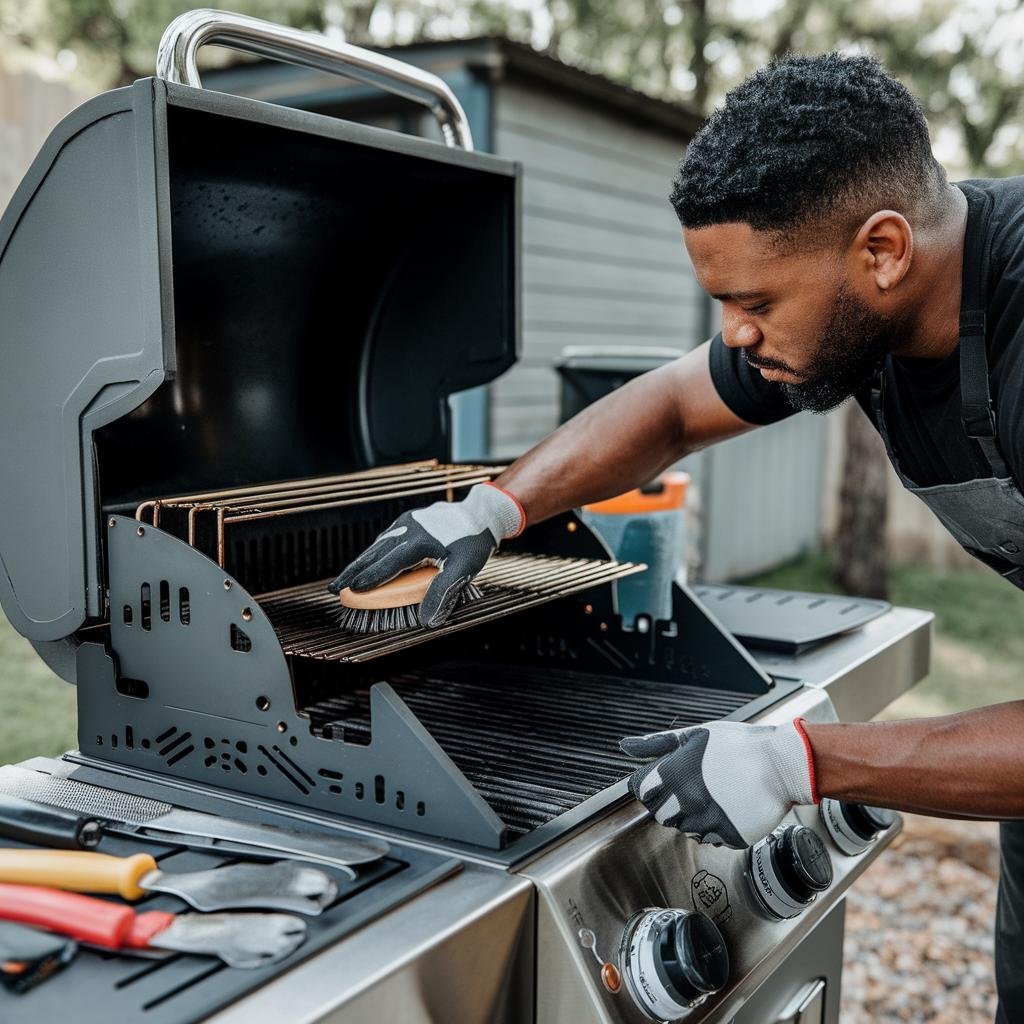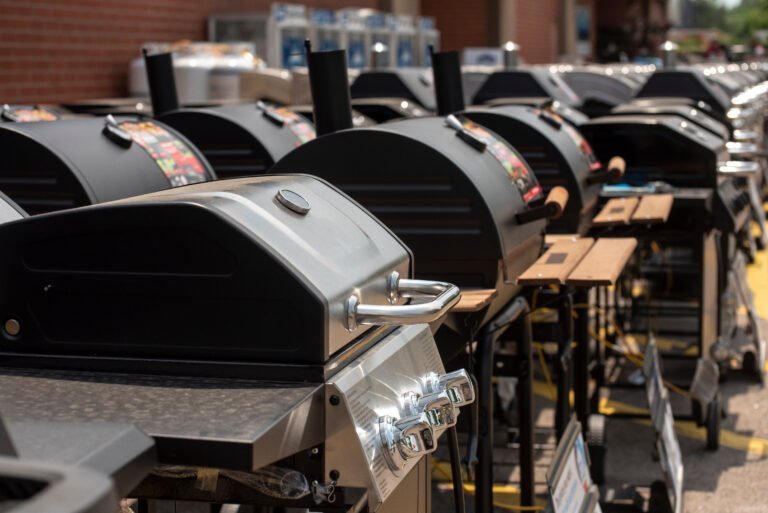Disclosure: This Post Contains Affiliate Links; We earn a commission on purchases.
It’s time to fire up the grill and enjoy delicious meals in the great outdoors. But before you do, it’s important to ensure that your outdoor cooking gear is clean, well-maintained, and ready to deliver mouthwatering results. By following these seasonal maintenance tips, you can prolong the life of your equipment and keep it performing optimally throughout the year.
Key Takeaways:
- Clean your outdoor cooking gear regularly, focusing on the grill, grates, burners, and firebox.
- Use a wire brush or aluminum foil to scrub the grates and remove food particles.
- Preheat the grill before cooking to burn off any residue and ensure even heat distribution.
- Protect your outdoor cooking gear by using a weather-resistant cover when not in use.
- Store your equipment in a cool, dry place away from rain and snow, or use a properly-sized grill cover if storing outside.
Cleaning Your Outdoor Cooking Gear
Regular cleaning is essential to keep your outdoor cooking gear in good condition. By following these outdoor grill maintenance tips, you can ensure that your equipment performs optimally and lasts for many seasons to come.
Cleaning Your Grill
To start, thoroughly clean the various components of your grill, including the grates, burners, and firebox. For gas grills, also clean the dripping pans and check for any obstructions in the burner tubes.
“A clean grill not only improves the flavor of your food but also helps prevent flare-ups and extends the life of your grill,” says grill expert John Smith.
Before cleaning, make sure the grill is turned off and disconnected from the fuel source. Use a wire brush or aluminum foil to scrub the grates and remove any food particles. Consider oiling the grates or applying oil to the food itself before cooking to prevent sticking.
Preheat the grill for a few minutes before cooking to burn off any remaining residue. After you finish cooking, clean the grill again to remove any ashes or grease buildup.
Removing Remaining Ashes and Grease
Here is a step-by-step guide for removing remaining ashes and grease:
- Allow the grill to cool down completely.
- Remove the grates and use a grill brush to scrape off any residue.
- Empty the ash collection tray and dispose of the ashes in a safe manner.
- Clean the interior of the grill with warm soapy water and a sponge or cloth.
- Wipe down the exterior of the grill with a damp cloth.
Remember to refer to your grill’s manual for specific cleaning instructions, as different models may have unique features or requirements.
Maintaining Your Outdoor Cooking Appliances
Cleaning your grill is just one part of essential maintenance for your outdoor cooking appliances. It is also important to clean and maintain other components, such as stainless steel sinks, refrigerators, and pizza ovens. Inspect these components regularly, clean them according to the manufacturer’s recommendations, and address any issues promptly.
Outdoor Grill Cleaning Checklist
| Task | Frequency |
|---|---|
| Clean grates, burners, and firebox | After every use |
| Clean dripping pans and check burner tubes | Monthly |
| Preheat the grill to burn off residue | Before each use |
| Scrub grates with a wire brush | After every use |
| Clean grill interior and exterior | As needed |
Regular cleaning and maintenance will not only keep your outdoor cooking gear looking its best but also ensure that it performs at its peak and stays in optimal condition for years to come.
Protecting and Storing Your Outdoor Cooking Gear
Proper protection and storage are key to prolonging the life of your outdoor cooking gear. By taking the necessary precautions, you can ensure that your equipment remains in excellent condition for years to come. Here are some outdoor kitchen maintenance hacks that will help you keep your gear in optimal shape:
1. Use a Weather-Resistant Cover
When your outdoor cooking gear is not in use, consider using a weather-resistant cover to protect it from the elements. This will shield your grill and other equipment from rain, snow, and UV rays, preventing damage and extending their lifespan.
2. Account for Humid or Salty Air Environments
If you live in a humid or salty air environment, it’s best to leave your grill uncovered when not in use. While covers provide protection, they can also trap moisture, leading to rust and corrosion. By leaving your grill uncovered, you allow proper airflow, reducing the risk of damage.
3. Thoroughly Clean and Dry Your Equipment
Before storing your outdoor cooking gear, make sure to clean it thoroughly. Remove any leftover food particles, grease, or ash to prevent staining and deterioration. Additionally, be sure to dry your equipment completely, as moisture can encourage rust formation.
4. Coat the Grill Grates with High-Heat Cooking Oil
To prevent rusting, coat the grill grates with a high-heat cooking oil after cleaning. This provides a protective layer that inhibits moisture absorption and helps maintain the condition of the grates.
5. Store in a Cool, Dry Place
If possible, store your outdoor cooking gear in a cool and dry location. This can be a shed, garage, or designated storage area. Keeping your equipment protected from moisture and extreme temperatures will reduce the risk of damage.
6. Outdoor Storage Tips
If you’re storing your gear outside, ensure you have a properly-sized grill cover. Make sure the propane tank is shut off and securely placed. This will safeguard both your equipment and the surrounding area.
By following these outdoor kitchen maintenance hacks, you can effectively protect and store your outdoor cooking gear, prolonging its life and optimizing its performance.
Maintaining Outdoor Kitchen Components
In addition to cleaning and storing, it’s important to maintain other components of your outdoor kitchen. By regularly inspecting and cleaning the refrigerator, checking gas lines and connections, and preserving countertops and surfaces, you can ensure the longevity and optimal performance of your outdoor cooking equipment.
Start by inspecting the fridge for signs of wear or malfunction. Clean it thoroughly with warm, soapy water, paying special attention to the interior, shelves, and door seals. This will help remove any food residue or odors that may have accumulated over time.
To effectively maintain your outdoor kitchen appliances, monitor their performance and address any issues or repairs needed. This includes checking gas lines for leaks or obstructions and ensuring that all connections are secure. If you notice any irregularities or problems, consult a professional technician to diagnose and fix the issue.
When it comes to preserving your countertops and surfaces, take steps to prevent damage and maintain their appearance. If you have natural stone countertops, seal them regularly to protect against stains and moisture. Avoid using abrasive cleaners that could scratch or damage the surface. Instead, opt for gentle cleaning solutions and a soft cloth or sponge.
“Regular maintenance of your outdoor kitchen components is essential for their longevity and functionality. By inspecting, cleaning, and preserving these elements, you can enjoy your outdoor cooking space for years to come.”
Outdoor Kitchen Maintenance Checklist
| Maintenance Task | Frequency |
|---|---|
| Inspect and clean refrigerator | Monthly |
| Check gas lines and connections | Seasonally |
| Preserve countertops and surfaces | As needed |
Regular maintenance is key to keeping your outdoor kitchen in excellent condition. By following these simple maintenance tips and incorporating them into your routine, you can ensure the longevity and optimal performance of your outdoor cooking gear.
Seasonal Maintenance Checklist
Creating a seasonal maintenance checklist is crucial for the care and longevity of your outdoor cooking equipment. By following this guide, you can ensure that you don’t miss any essential maintenance tasks throughout the year. Take a proactive approach to keep your gear in optimal condition and enjoy hassle-free outdoor cooking experiences.
Cleaning the Grill
Regularly cleaning your grill is essential for maintaining its performance and preventing build-up. Use a wire brush or aluminum foil to scrub the grates and remove any food particles. For thorough cleaning, disassemble the grill and clean the burners, firebox, and dripping pans. Preheating the grill before cooking can help burn off any leftover residue.
Checking for Debris
Inspect your outdoor cooking area for any debris that may have accumulated over time. Remove fallen leaves, twigs, and other debris that could clog the grill or affect its functionality. Clearing the area ensures the safety and efficiency of your cooking equipment.
Inspecting and Cleaning the Refrigerator
If you have an outdoor refrigerator in your kitchen setup, it’s important to inspect it periodically for any signs of wear or malfunction. Clean the refrigerator with warm, soapy water and sanitize it regularly to keep it functioning optimally. Taking proper care of your refrigerator ensures that your ingredients stay fresh and your outdoor kitchen is fully equipped.
Covering and Storing the Equipment
Protecting your outdoor cooking gear from the elements is crucial for its longevity. When not in use, cover your grill and other equipment with a weather-resistant cover. If you live in a humid or salty air environment, it’s best to leave your grill uncovered to prevent rusting. Ensure your equipment is thoroughly cleaned and dried before storing it to prevent any potential damage caused by moisture. Store your gear in a cool, dry place away from rain and snow. If storing outside, use a properly-sized grill cover and securely shut off the propane tank.
Addressing Repairs or Replacements
Regularly inspect your outdoor cooking equipment for any signs of damage or wear. Addressing any necessary repairs or replacements promptly can prevent further issues down the line. Whether it’s a faulty ignition system, worn-out burners, or damaged grates, attending to these maintenance needs ensures that your equipment continues to function optimally.
By following this seasonal maintenance checklist, you can keep your outdoor cooking equipment in excellent condition year-round. Regular cleaning, checking for debris, inspecting the refrigerator, covering and storing the equipment, and addressing necessary repairs or replacements are essential for the essential maintenance of your outdoor cooking appliances.
Winterizing Your Outdoor Kitchen
During the winter months, it’s crucial to take extra precautions to protect your outdoor kitchen from harsh weather conditions. By following these steps, you can ensure the longevity and durability of your outdoor cooking gear, prolonging its life and saving you from unnecessary expenses.
Clean and Prepare Your Equipment
Thoroughly clean and inspect your outdoor cooking equipment before winter sets in. Remove any accumulated dirt, grime, or food residue. Use warm, soapy water and a soft cloth or sponge to clean the surfaces of your grill, stove, and other appliances. Pay special attention to the burner ports, as they can become clogged and affect the performance of your equipment.
Protect and Store Removable Components
Before storing your outdoor cooking gear, make sure to remove any removable components. This includes grill grates, burner covers, and side shelves. Clean them thoroughly, dry them completely, and store them in a dry and secure location. This will prevent moisture and rust from damaging these components during the winter months.
Prevent Freezing and Damage to Plumbing
To protect your plumbing from freezing, disconnect any water or gas connections to your outdoor kitchen. Drain the pipes and make sure they are completely empty. Use an approved antifreeze solution to prevent any water remaining in the pipes from freezing and causing damage. Follow the manufacturer’s instructions for the specific type of antifreeze to use.
Repair or Replace Damaged Parts
Inspect your outdoor cooking gear for any signs of damage or wear. Check for loose screws, cracked surfaces, or malfunctioning components. It’s essential to address these issues before winter to prevent further damage. If you find any damaged parts, either repair them yourself or consult a professional for assistance. It’s always best to ensure your equipment is in good working condition before storing it for the season.
Properly Cover Your Grill
Whether you’re storing your grill indoors or outdoors, it’s important to use a weather-resistant cover. This will protect it from the elements, such as rain, snow, and strong winds. Make sure the cover fits snugly and covers the entire grill, including any side burners or storage compartments. This will prevent moisture from seeping in and causing damage.
Storage Tips
If you have space available, consider bringing your grill inside to a shed, garage, or climate-controlled storage unit. This will provide the best protection against extreme weather conditions. If storing outside is your only option, make sure to place your grill on a stable and elevated surface to prevent moisture accumulation. Securely cover it with the weather-resistant cover, ensuring it remains tightly closed. Additionally, disconnect the propane tank and store it in a safe and secure location.
By taking these steps to winterize your outdoor kitchen, you can ensure the longevity and performance of your outdoor cooking gear. Proper maintenance and storage will protect your investment and allow you to enjoy your outdoor cooking experience for years to come.
Conclusion
By following these seasonal maintenance tips for your outdoor cooking gear, you can ensure its longevity and optimal functionality. Regular cleaning, proper storage, and maintenance of components will help keep your equipment in top shape.
Create a seasonal maintenance checklist and stay diligent in caring for your outdoor kitchen throughout the year. Remember to clean your grill thoroughly, check for debris, inspect and clean the refrigerator, cover and store the equipment, and address any necessary repairs or replacements.
With proper maintenance, you can enjoy delicious outdoor meals for years to come. So, don’t neglect your outdoor cooking gear – take care of it, and it will take care of you!
Source Links
- https://www.advantagestorage.net/blog/how-to-store-your-grill-this-fall/
- https://www.libertyhomeguard.com/maintaining-your-outdoor-kitchen/
- https://www.washingtonpost.com/food/2023/06/26/how-to-clean-grill/

Ryan Conlon is a BBQ enthusiast and inspired chef on a journey through the smoky, savory world of outdoor cooking. Hailing from the heart of the Midwest, Ryan’s passion for grilling ignited during his early years, where family gatherings often revolved around the sizzle of the grill and the aroma of seasoned meats.

